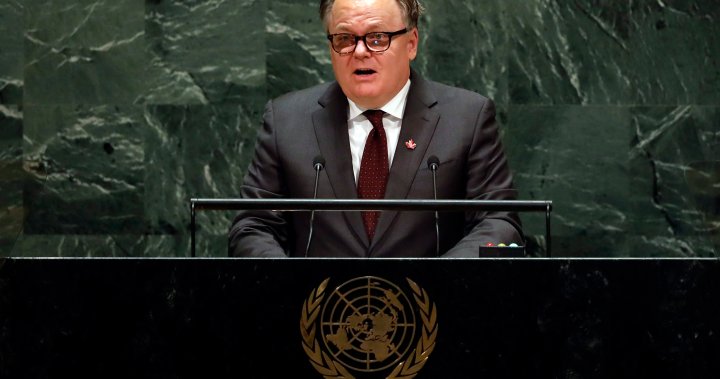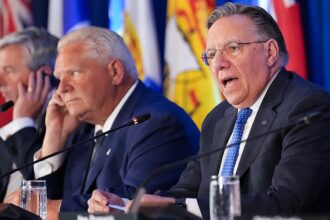In a strategic move that signals the seriousness of Mark Carney’s political ambitions, the former Bank of Canada governor has appointed Marc-André Blanchard, a prominent diplomat and business leader, as his chief of staff. This appointment comes as Carney, who also previously led the Bank of England, continues to position himself as a significant force within Canadian politics, particularly within Liberal circles.
Blanchard brings considerable diplomatic and corporate experience to the role, having served as Canada’s ambassador to the United Nations from 2016 to 2020 under Prime Minister Justin Trudeau’s government. Prior to his diplomatic service, Blanchard was the CEO of McCarthy Tétrault, one of Canada’s leading law firms, demonstrating his ability to navigate both political and business environments with equal dexterity.
“The appointment of someone with Blanchard’s caliber suggests Carney is assembling a high-powered team capable of managing complex political challenges,” notes Dr. Lori Turnbull, Director of the School of Public Administration at Dalhousie University. “This isn’t a casual political dabbling—it appears to be a calculated preparation for something significant.”
Since returning to Canada, Carney has gradually increased his political involvement, serving as the Liberal Party’s election readiness co-chair alongside current Minister of Intergovernmental Affairs Dominic LeBlanc. His economic expertise has been particularly valued as the party navigates challenging economic waters and declining poll numbers.
The timing of this appointment is particularly noteworthy as it follows Carney’s recent speech at the Liberal Party convention in May, where he delivered what many political analysts described as a campaign-style address. While Carney has not officially declared his intention to seek public office, his actions suggest a methodical approach toward a potential leadership bid should Prime Minister Trudeau step aside.
“Blanchard’s extensive network within international diplomatic circles and Canadian business will be invaluable assets to Carney,” says Elizabeth Renzetti, political commentator for CO24 Politics. “His UN experience provides crucial global perspectives at a time when international relations and economic policies are increasingly intertwined.”
The appointment also reflects a growing trend of experienced technocrats entering Canadian politics, bringing their expertise from financial, diplomatic, and business sectors. Carney himself represents this shift, having transitioned from central banking to climate finance as the UN Special Envoy on Climate Action and Finance, before increasing his involvement in domestic politics.
Financial markets have responded with cautious optimism to the news, with some analysts suggesting that Carney’s economic credentials could help restore investor confidence in Canada’s fiscal management. “The markets respect Carney’s economic acumen,” explains Martin Pelletier, senior portfolio manager at Wellington-Altus Private Counsel. “Having strong figures like Blanchard in his corner only enhances that credibility.”
As the Liberal Party faces declining poll numbers and growing economic concerns among voters, Carney’s moves are being closely watched by political insiders across party lines. The Conservative Party has already begun positioning against a potential Carney candidacy, highlighting his role in climate finance as potentially problematic for Canada’s resource-dependent regions.
As Canadian politics enters a period of potential transition, the question remains: Is Blanchard’s appointment merely the next step in Carney’s gradual political evolution, or does it signal an imminent and more dramatic entrance into electoral politics? The answer may reshape Canada’s political landscape for years to come.











